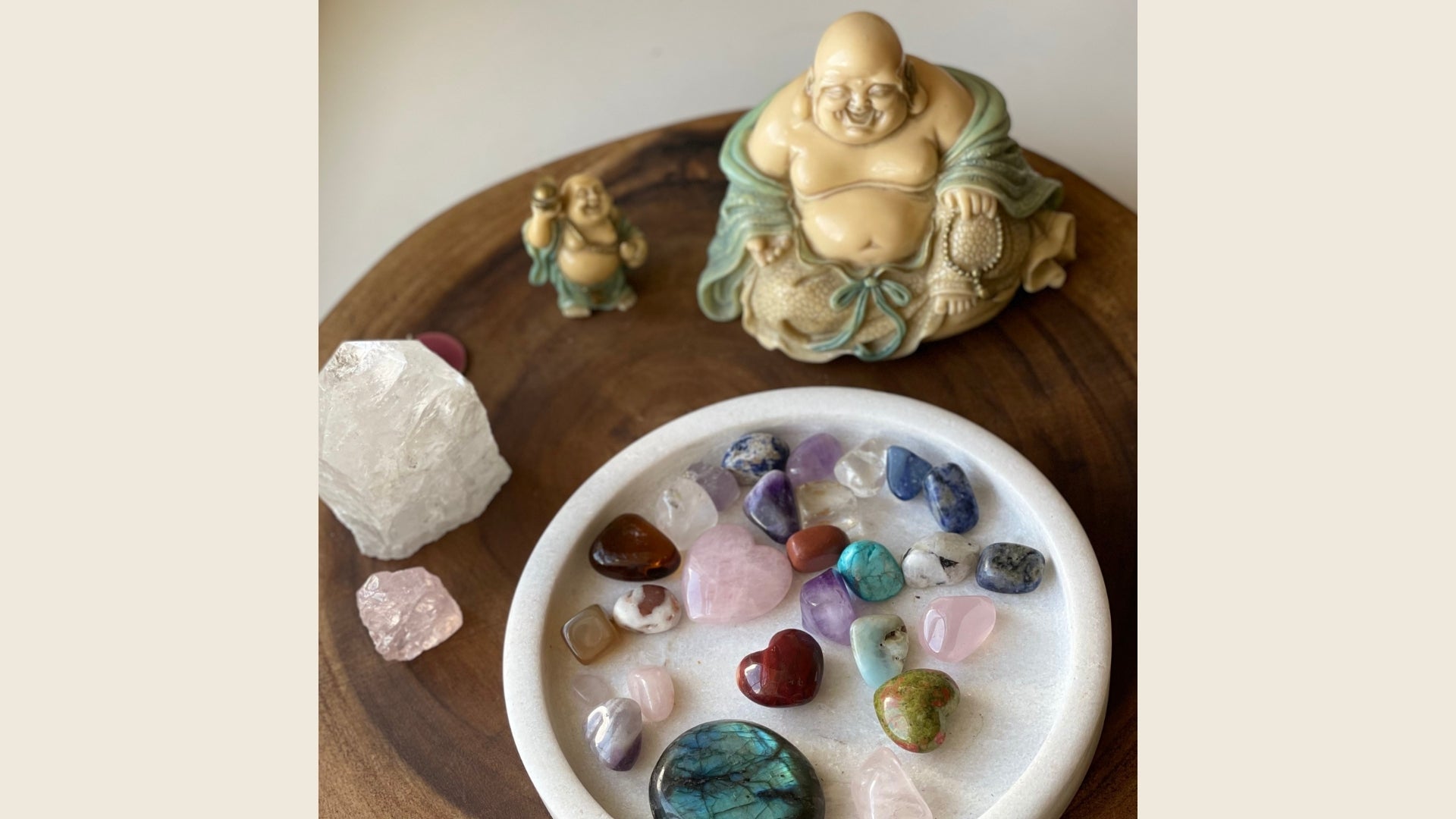Article: What is a mantra?

What is a mantra?
What is a mantra? A mantra is a sound, word or phrase which we repeat to ourselves during meditation. It can be used as part of yoga and other spiritual practices. In Hinduism, Buddhism and Jainism, mantras are used for mental focus and concentration as well as the achievement of certain goals such as healing from illness or injury. Mantras also have been shown to have physical effects on our bodies, including reducing blood pressure and stress levels.
The importance of mantras in different faiths
A mantra can be used as part of yoga or meditation practices. It is typically repeated to achieve mental focus and concentration during the activity. Mantra has been shown to have physical effects on our bodies too. For example they reduce blood pressure and stress levels.
Om mani padme hum meaning “Behold! The jewel in the lotus” - This Buddhist mantra is said to help people who are seeking enlightenment.
Christian
- Amen and Alleluia (from Hebrew)
- Hail Mary and the Lord's prayer - he mantra which is used for protection and to ask God's grace.
Hindu
- Mahamrityunjaya Mantra - This mantra is used for protection against sickness, fear and danger. It also protects from accidents which lead to death by the preservation of life force or prana.
Aum - From Sanskrit and also appears in many texts including the Upanishads. It is believed to symbolise the primeval sound of creation which everyone can hear within themselves. The mantra also extends forward in time so people say it when they are looking for creative beginnings and endings.
Jain
- Saraswati Mantra - A prayer for knowledge and wisdom as well as a call towards inner spirituality. How to create your own mantra Have you ever wondered if there was a special word that could help boost self-confidence? Well, now you can make up one yourself! Find what words resonate with you personally and start writing out mantras that
Judaism
- I am the Lord - A monotheistic prayer that asks for guidance, strength and courage. It can be said as part of morning prayers or during times of need such as illness.
How to create your own mantra
You could try writing down words that remind you why you practice yoga or meditation, perhaps focusing on qualities like patience, compassion or courage. You could also think about words that feel uplifting to you.
You could also simply adopt existing mantras as your own such as
The Serenity Prayer - This is a popular mantra in Alcoholics Anonymous groups and begins “God grant me the serenity…”
Gayatri mantra - This mantra has been used in daily Hindu prayer for thousands of years. It is believed to be the most powerful of all mantras and helps people feel more connected with themselves, each other, their surroundings and even God!
How to use a mantra for self-confidence and motivation
Mantras can be incredibly helpful when they come from deep inside us because this makes them feel more meaningful. When using one as part of meditation or yoga practice try repeating it out loud at first then switching to silently within yourself. This will help make sure that the words become familiar with your inner voice too! You could also experiment playing some gentle music while saying it aloud if you’re struggling with staying focused on what is being said.
Mantras can help you find more confidence by reminding you that your ability, knowledge and skills are already there inside yourself. It’s as if they were always present but you haven’t been paying attention! A good example of this would be using mantras at work or in school - perhaps repeating “I am smart enough/good enough for this task; I know what I need to do now; My time will come soon” before an exam or interview could really help.
Why mantras can be beneficial for mental health
Mantras are believed to have a positive effect on our mental health which is why they can be so helpful for people suffering from anxiety, depression or low self-esteem. This happens because mantras allow us to bring our focus back into the present moment and away from thoughts that keep bringing up negative emotions over and over again. When we use mantras in meditation or yoga practice it’s important not to force anything though! If you find yourself struggling with getting your words out then it could mean this technique isn’t working well right now but don’t worry about that - just try something else instead.
Finding the right mantra can be difficult and time consuming. But there are a few tips that may make it easier to find one you like. One is finding out what your favorite color, animal or flower represents in Hinduism, Buddhism and Jainism (for example) because they often have mantras associated with them. Another tip is looking for short phrases that resonate with you such as "I am enough" or "all things will work together for my good" which might be more suited to your needs than longer ones when creating your own mantra.
Mantra use traditionally has been beneficial for mental health but also self-confidence and motivation so if any of these sound appealing then take some time to explore this ancient practice.




